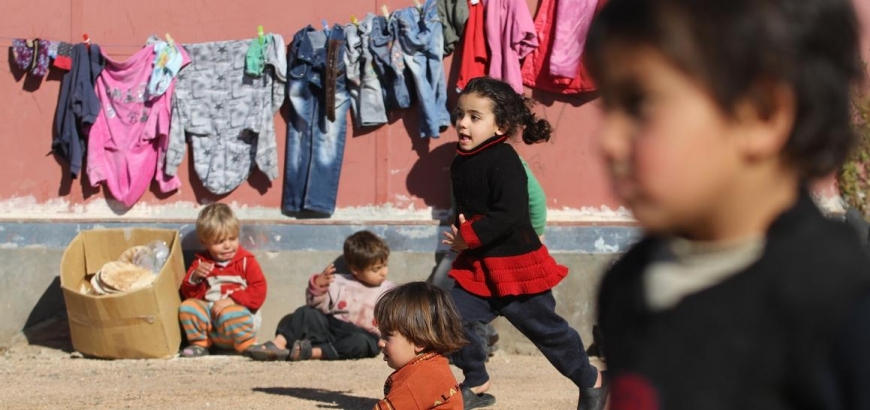The number of children in Syrian orphanages has risen to 32,000, including 22,000 children in Damascus and its countryside according to the Services Director in the Assad regime’s Ministry of Social Affairs, Maysa Midani.
Midani said that orphans, which are registered with an orphanage association, could be sponsored with a monthly payment, whether the child is living at the orphanage or with family.
She added in a statement that to sponsor an orphan meant securing food, clothes, education and healthcare, costing about 7,000 Syrian pounds on average, along with a package of in-kind aid.
The number of orphans in orphanages has grown greatly because of the war, with tens of thousands of children being orphaned.
The difficulty of adopting orphans legally in Syria has pushed many to “adopt in the dark, and pushed sheikhs to justify this, and even to participate in it sometimes,” according to an Ayyam report.
When an imam of one of the mosques entered for morning prayer and found a young child at the door, he did not hesitate to find him a family to care for him — with his first goal to find security for the child. The laws and small details did not stop him.
The child was given the name Qais, and through good fortune, he will not share the same fate as the thousands of other children who have ended up in overcrowded orphanages.
Barsoum Kando, who is in charge of a volunteer team working with orphaned Christian and Muslim children, said that the team was allowed to find a family able to take care of an orphaned child, which will help him avoid the difficult situation in orphanages. Whatever the care provided by the orphanage, the child needs direct care and family attention. He said that before the child is given to a family, they need to be studied closely to confirm their morals, material situation, reputation and ability to care for the child. The family can adopt the child and If the child’s name is unknown, then the family can give him a new one.
He continued: “During my work with orphans there have been cases of children living with other families who are able to care for them, while there have also been children whose parents have been unable to care for them and who have gone to live with another family. This happened with a three-year-old child who was adopted by his relatives.”
Barsoum said that “many people have died in this war, and the church is working with a number of lawyers to secure families to adopt children, especially those who are very young. We need to find a solution for them, rather than leaving them to live forever in the misery which the war has inflicted.”
Midani, said that adoption was totally banned under the law and this could not be violated. She said that the law allowed children of unknown parentage to have a sponsor family following the Ministry’s approval. There are two orphanages that take in children of unknown parentage in Syria: Lahan al-Hayya in Damascus and the Kifalat al-Tafoula Association in Aleppo. Under certain conditions, and with the Minister’s personal permission, these orphanages can place any child with a family who is willing.
The law for the sponsoring of children of unknown parentage allows families to sponsor children, and also allows sterile people to sponsor a child, on the condition that they are the same sex — that is, a girl’s sponsor is a woman, and a boy’s is a man.
Children of known parentage are limited to orphanages, as the law does not permit any family to take them through sponsorship, despite the fact that religion does not prohibit sponsorship, but actually strongly encourages children to be cared for.
Midani said that the children in orphanages could not be attached to an alternative family unless they were relatives. There are many children who have been left without family care who are “unaccompanied” — that is, there is no one from their family to take them. They cannot be dealt with as children of unknown parentage, but they can be sponsored financially when they are in the orphanage. In these sorts of cases, the Ministry will track the family in search of a sponsor, solely from among their relatives. This is included under the category of “legal guardianship” and not sponsorship.
This article was translated and edited by The Syrian Observer. Responsibility for the information and views set out in this article lies entirely with the author.


